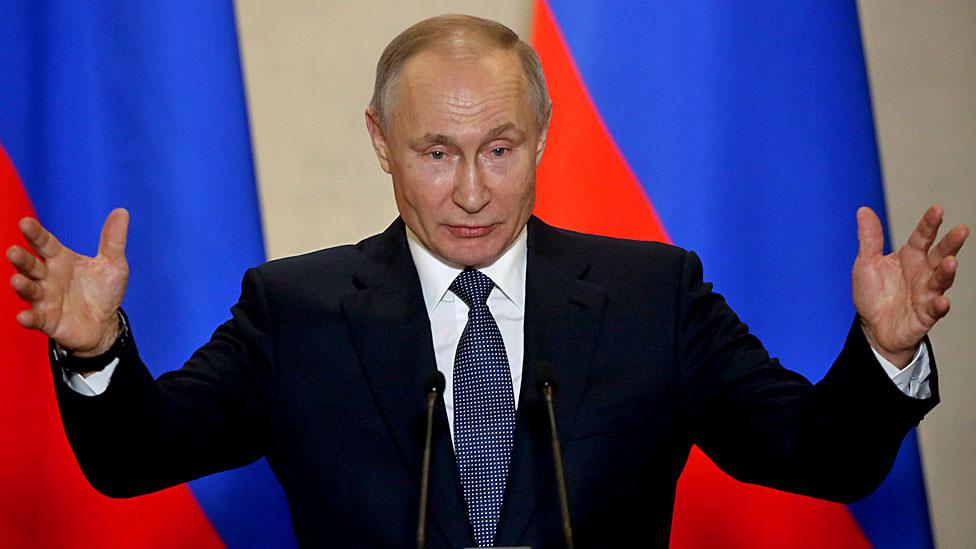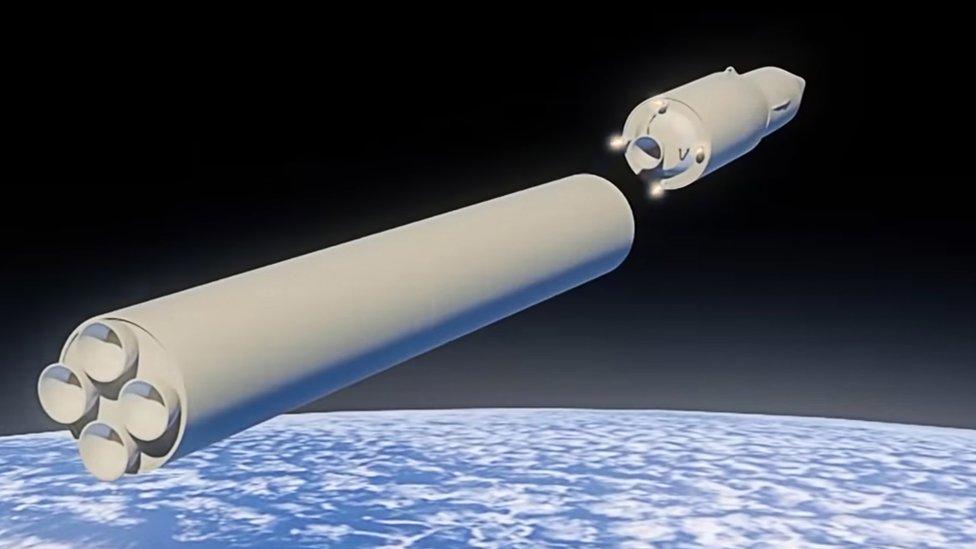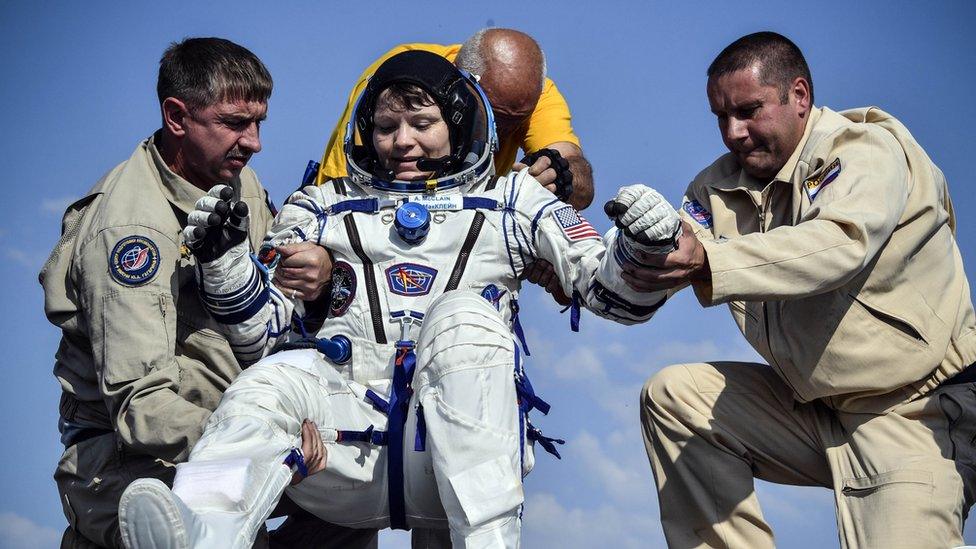UK and US say Russia fired a satellite weapon in space
- Published

The US and UK have accused Russia of testing a weapon-like projectile in space that could be used to target satellites in orbit.
The US State Department described the recent use of "what would appear to be actual in-orbit anti-satellite weaponry" as concerning.
Russia's defence ministry earlier said it was using new technology to perform checks on Russian space equipment.
The US has previously raised concerns about new Russian satellite activity.
But it is the first time the UK has made accusations about Russian test-firing in space. They come just days after an inquiry said the UK government "badly underestimated" the threat posed by Russia.
In a statement on Thursday, US Assistant Secretary of State for International Security and Non-proliferation, Christopher Ford, accused Moscow of hypocrisy after it said it wanted arms control to be extended to space.
"Moscow aims to restrict the capabilities of the United States while clearly having no intention of halting its own counter-space programme," he said.
The head of the UK's space directorate, Air Vice Marshal Harvey Smyth, said he was also concerned about the latest Russian satellite test, external, which he said had the "characteristics of a weapon".
"Actions like this threaten the peaceful use of space and risk causing debris that could pose a threat to satellites and the space systems on which the world depends," he said. He urged Russia to be "responsible" and to "avoid any further such testing".
Russia, the UK, the US and China are among more than 100 nations to have committed to a space treaty that stipulates that outer space is to be explored by all and purely for peaceful purposes.
The treaty adds that weapons should not be placed in orbit or in space.
The US said the Russian satellite system was the same one it raised concerns about in 2018 and earlier this year when the US accused it of manoeuvring close to an American satellite.
In this latest incident, Gen Jay Raymond, who heads US space command, said there was evidence Russia "conducted a test of a space-based anti-satellite weapon".
Gen Raymond added: "This is further evidence of Russia's continuing efforts to develop and test space-based systems and [is] consistent with the Kremlin's published military doctrine to employ weapons that hold US and allied space assets at risk."


This Russian test of what the Americans say is an anti-satellite weapon is part of a pattern of recent Russian space activity. In February, the US military said that two Russian satellites manoeuvred close to an American one, and in April Moscow test-fired a ground-based satellite interceptor.
Only four countries - Russia, the US, China and India - have demonstrated an anti-satellite capability over the past decades. Anti-satellite warheads have been carried aloft by aircraft or rockets, and satellites have also been illuminated by lasers.
But Moscow is also clearly looking at using one satellite to kill another. Interest in such weapons is growing given our reliance upon satellites for a variety of purposes such as intelligence gathering, communications, navigation and early-warning.
There is no treaty banning or limiting such weapons though a number of countries have argued for some kind of agreement to do just this.
But in military terms, space has already become the new frontier with several countries organising specific commands in their armed forces to deal with both the defensive and offensive aspects of protecting their essential space-based systems.

A test of a new Russian satellite took place on 15 July with the aim of performing checks on the country's space equipment, Russia's defence ministry said at the time.
"During testing of the latest space technology, one of the domestic satellites was examined close up using the specialised equipment of small space craft," the ministry said, according to Interfax news agency.
It added that "valuable information about the technical condition of the object under investigation" had been recorded.
- Published15 August 2018

- Published21 July 2020

- Published27 December 2019

- Published24 August 2019
